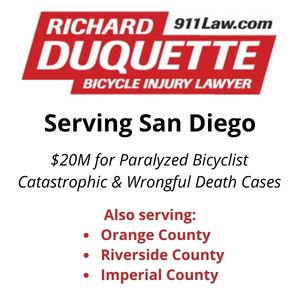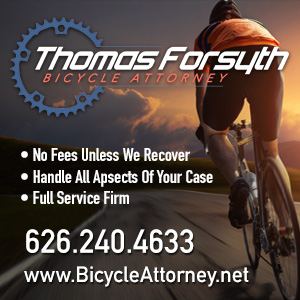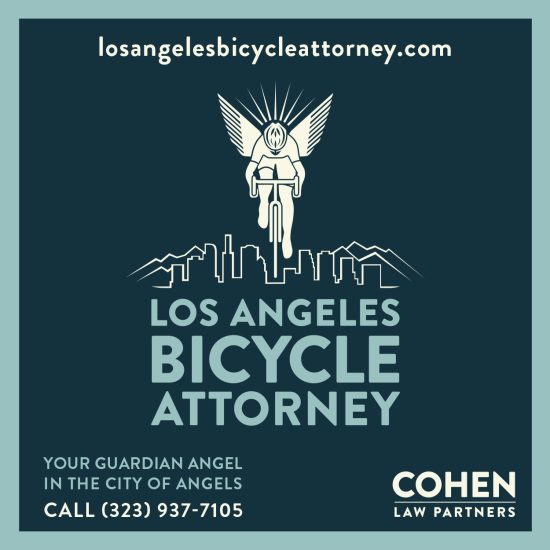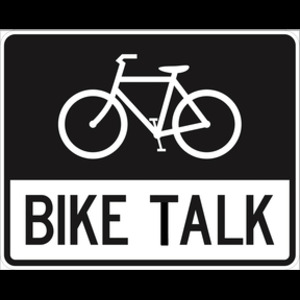
No, it’s not your imagination.
The National Highway Traffic Safety Administration reported yesterday that more people have died on American streets in the first quarter of this year than any year in the past two decades.
Early NHTSA estimates show 9,560 people died in motor vehicle traffic crashes through the end of March, a seven percent increase over last year, which saw the highest number of traffic deaths in 16 years.
In other words, we are going the wrong way, at an ever-increasing pace.
There’s a wide range of likely reasons, ranging from speeding and distracted drivers to trucks and SUVs with high, flat grills designed to kill.
None of which are beyond our ability to solve today.
We only need to get enough people to care enough about the lives of innocent victims to demand change.
But so far, that, too, has been beyond our reach.
………
On a related note, Ontario, Canada safety advocates say they have the numbers to prove pickups and SUVs cause more deaths, and have written the province’s chief coroner to request an investigation.
One of the studies, from 2021, estimates 8,131 pedestrians between 2000 and 2019 could have survived if they were struck by sedans instead of SUVs or trucks.
Another study, published in the Journal of Safety Research in June, found that while SUVs and trucks made up just 26.1 per cent of pedestrian and cyclist collisions, they accounted for 44.1 per cent of fatalities. That study also suggested that because of their larger size, SUVs and trucks are more likely to hit vulnerable road users in the chest or head than a sedan.
Maybe they could write a few letters to US officials while they’re at it.
………
A writer for Outside takes a deep dive into the aftermath of a tragic New York bicycling collision that took the life of a young woman, to examine why drivers are so seldom held accountable for killing another person.
And what can be done about it.
As part of the story, he looks back to the magazine’s groundbreaking Cycling Deaths project, which attempted to document every bicycling traffic death in 2020, recording nearly 700 fatalities.
In most of the stories we gathered information on, there were no consequences for the driver or even scrutiny of their behavior. Law enforcement rarely issued a ticket to drivers who killed cyclists. Criminal charges for the crash itself were even less common, often occurring only when a driver was intoxicated. It was hard not to read through each case and wonder: Is that the way things should be? Does driving that results in someone’s death cross the legal threshold for punishment that infrequently?
It’s very hard to find comprehensive data on penalties issued after car crashes, but among the safe-streets advocates and legal experts I talked to, it’s generally taken as a matter of course that people who kill cyclists while driving—even recklessly, even illegally—are rarely held legally accountable for their actions. The big picture, those observers say, is that drivers are offered a kind of impunity that doesn’t exist in just about any other situation where a human kills another human. “The judicial system is applying laws in a way that results in widespread injustice to victims of traffic violence,” says Gregory Shill, a law professor at the University of Iowa. “I would go beyond courts—a common root of all this is that we have a high social acceptance of traffic deaths.”
As the story points out, drivers should automatically lose their license if they kill another person, but seldom do.
As Traffic author Tom Vanderbilt put it, a drivers license is too easy to get, and too hard to lose.
If I had my way, killer drivers would be sentenced to work-release, required to serve in emergency rooms and morgues during the day to tend to the victims of traffic violence, before returning to their cells at night.
Although the courts would probably consider that cruel and unusual punishment to subject them to that kind of emotional and psychological torment.
Unlike, say, their victims and their loved ones, who have to suffer that pain for the rest of their lives.
………
This is who we share the city with, unfortunately.
Maybe they’re care more if it was 58. Or 59.
Listening to the @marvistacc meeting in the context of implementing/extending protected bike lanes and bus lanes on Venice Bl and a board member just said “only 57 people have died and you’re “messing up” the community with these bike and bus lanes just for that”
Peak NIMBYism.
— Michael Schneider (@schneider) August 18, 2022
………
Time’s running out to score a great deal on a vintage bike, and support a good cause in the process.
Whoo Hoo! We are down to some vintage bikes, t-shirts ($5) and Bike Lights ($5/pair). Make us an offer on the bikes and we'll throw in lights or a shirt! #garagesale #fundraiser @JimPocrass @bikinginla @StreetsblogLA pic.twitter.com/lV7reAuZJj
— Walk 'n Rollers (@WalkAndRollers) August 17, 2022
………
Yes, your morning commute can be green, and actually make you happy.
Even in chilly Minnesota.
………
Remember this the next time you have to lock your bike up to a banged-up wheel-bender rack.
https://twitter.com/citycyclists/status/1559900618713612290
Thanks to Glenn Crider for the heads-up.
………
GCN wants to help you improve your average speed on your bike.
………
Our German correspondent Ralph Durham forwards a photo of race walkers at the European Championships in Munich, where he’s working as a volunteer.
And points out that even they have to cope with race motos. Although the slower pace probably means they pose less risk to the racers.

………
The war on cars may be a myth, but the war on bikes just keeps on going.
That’s more like it. An Idaho driver has been sentenced to 12 years behind bars, with three years fixed, for chasing bike-riding kids through a public park with his pickup, then running over one boy’s bike after he jumped off. But it’s okay, because he’s really, really sorry. No, really.
Sometimes, it’s the people on two wheels behaving badly.
LAPD officers shot a bike-riding young man waving a machete after he refused orders to drop the knife and allegedly advance on officers; no word on his condition.
Elderly London residents say they’ve stopped walking on a roadway that was closed as part of the city’s Low Traffic Neighborhood, the equivalent of a Slow Street in the US, out of fear of red light-running bicyclists and confusion over who has the right-of-way.
………
Local
The Eastsider reports city officials will make the temporary closure of Griffith Park Drive through Griffith Park permanent, after a traffic study showed the closure eliminated cut-through commuter traffic without increasing traffic on Zoo Drive (scroll down).
LADOT is bringing protected bike lanes and bus islands to a one-mile stretch of Central Ave in Watts.
State
A California firm is working with Toshiba to improve the chemistry of ebike batteries to reduce charging times and the risk of battery fires.
A coalition of San Diego advocacy groups have endorsed Alternative D for the planned reconstruction of Park Blvd through Balboa Park, which calls for eliminating parking and installing bus lanes and a separated bike lane.
He gets it. A spokesperson for the San Diego County Bicycle Coalition says the problem isn’t that ebikes are unsafe, it’s a wakeup call to how unsafe the roads are.
Anson Williams, the 72-year old actor who played Potsie in Happy Days back when dinosaurs still roamed the earth, is running for mayor of Ojai on a platform that includes expansion of bike paths and trails. He’s got my vote.
This is who we share the road with. A UC Santa Barbara cop was busted for a drunken hit-and-run in Solvang earlier this month; fortunately, his only victim was a parked minivan. Thanks to Ted Faber for the link.
A San Jose homeowner says he’s spent $30,000 to construct reinforced barriers to stop out-of-control drivers, after 23 drivers have slammed into his home since the 680 freeway opened 50 years ago.
National
Next City offers more on the recent NACTO report suggesting that bike laws aren’t keeping bike riders safe, while leading to over-policing of people of color.
Cycling Tips offers a beginner’s guide to what matters most in selecting entry-level road and gravel bikes.
More than 2,100 Denver residents have received ebike rebate vouchers up to $1,700 since the program began in April; most putting their ebikes to good use, with around half riding them on a daily basis. On the other hand, California’s fully funded ebike rebate program remains in limbo, apparently awaiting a chilly day in hell.
Congratulations to Nebraska, which is no longer the nation’s least bike-friendly state; that dishonor now goes to Wyoming, which is unfriendly to bikes and Cheneys, apparently.
Chicago Magazine talks with Christina Whitehouse, the founder of Bike Lane Uprising, an app allowing bike riders to log the location and submit photos of vehicles illegally parked in bike lanes.
No bias here. Chicago cops responded to a protest over drivers running red lights by changing the traffic signal to green for a full five minutes, stranding everyone waiting to cross the street.
A kindhearted Pittsburgh cop bought a new bike and helmet for an eight-year old girl, after firefighters weren’t able to save her bike from a fire at her grandmother’s house.
TMZ offers more information on the death of Ironman triathlete and Norristown PA cop Brian Kozera, who allegedly ran a stop sign on his bike and crashed into the side of a pickup, before being run over by the truck’s rear wheels. As always, the question is whether there were any independent witnesses to the crash, or if investigators are relying on the word of the driver.
International
If you’re looking for a new business opportunity, you could do worse than a solar-powered food ebike.
They get it. Calgary, Alberta is installing a bike lane to remove excess road space and slow speeding drivers.
Pilot protected bike lanes on one of Toronto’s busiest streets saw up to a 193% jump in ridership over a single year, while resulting in a less than one minute delay in motor vehicle traffic.
A seven-year old British boy became one of the youngest people to ride from Paris to London after his father was killed in an industrial accident, raising the equivalent of over $42,000 for bereaved children on the 200-mile journey.
The Guardian’s Peter Walker says a proposal to requite license plates on bicycles in the UK makes bicyclists the latest target in the culture wars. The proposed regulations are reminiscent of North Korea, where people are required to pass a bicycle proficiency test and display a metal license plate on their bikes; that country also bans women from riding bikes.
Competitive Cycling
For nearly two decades, we’ve been supposed to pretend Lance Armstrong and Floyd Landis never won the Tour de France. Now we’re supposed to pretend Nairo Quintana didn’t have a top ten finish in the Tour last year, after UCI stripped him of 6th place for using the prohibited painkiller tramadol; Quintana denies ever using it, of course.
Ramona High School graduate Gwendalyn Gibson, class of 2017, became the only American to win a World Cup mountain bike race this year, after taking first in a West Virginia race last month.
In case you missed it yesterday, NPR offers a good look at gravel racing, and the sport’s emphasis on diversity and inclusion. Thanks to Lionel Mares for the reminder.
This week’s 2022 Para-Cycling Road World Championships somehow slipped under the radar, even as the US is making a good showing.

Finally…
Evidently, bike mechanics hate triathletes — and not just because they wear speedos, evidently. That feeling when American tourists have no idea why there are so many bicycles parked at European train stations; thanks to Erik Griswold for the tip.
And now you, too, can have your very own DIY beer stabilization system to avoid spilling your suds as you ride around Burning Man.
………
Be safe, and stay healthy. And get vaccinated, already.
Oh, and fuck Putin, too.





